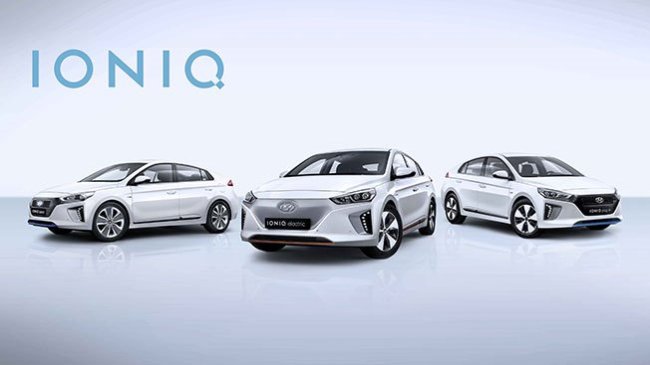Hyundai Motor, South Korea’s largest automotive company by sales, has invested in the Singapore-based carpooling service Grab to tap into the Southeast Asian mobility market, the company said Thursday.
Established in 2012, Grab is also known as the Uber of Southeast Asia, boasting a market share of some 75 percent in the region.
It currently operates in eight Southeast Asian countries across 168 cities with 2.3 million users and 3.5 million rides made daily.
“The convergence of Grab’s competitiveness in Southeast Asia and Hyundai’s green car technology will innovate the mobility service industry,” said Chi Young-cho, executive vice president and chief innovation officer of Hyundai’s strategy and technology division.
“Hyundai Motor will continually search for cooperation with car-sharing service providers armed with world-class technology to lead the global sharing economy markets.” The company did not share details of the amount of investment.
 |
Hyundai Motor's Ioniq EV (center). (Hyundai Motor) |
Revenue from car-sharing services worldwide is expected to reach $6.5 billion in 2024 from $1.1 billion in 2015, according to market research firm Navigant Research.
Hyundai Motor and Grab will look into developing a new carpooling service platform using Hyundai’s eco-friendly vehicles such as the Ioniq electric vehicle, the company said.
Hyundai added it has high expectations for the service to restore brand image in Southeast Asia, where governments are pushing eco-friendly policies.
The latest investment in Grab was led by Hyundai’s strategy and technology division, which was set up in 2017 to better manage the rapidly changing automotive industry.
Amid a global carpooling service boom, Hyundai Motor has signed partnerships with a slew of car-sharing providers in and outside of Korea.
In October last year, Hyundai launched a ride-sharing service with 100 units of the Ioniq EV in Amsterdam, Netherland, the company said.
For the first time in the auto industry, Hyundai had also supplied fuel cell electric vehicles for car-sharing.
A total of 50 Tuscon fuel cell electric vehicles were delivered to Linde, a leading German-based gas company in Munich, in June 2016, the company said.
By Kim Bo-gyung (
lisakim425@heraldcorp.com)







![[Robert Fouser] Accepting migrants in South Korea](http://res.heraldm.com/phpwas/restmb_idxmake.php?idx=644&simg=/content/image/2024/10/31/20241031050896_0.jpg)
